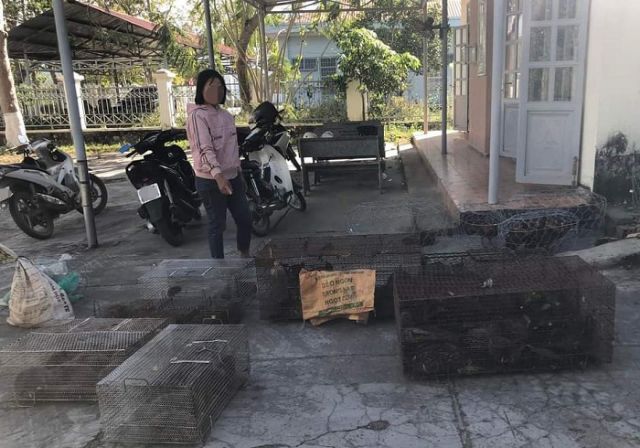 Environment
Environment

 |
| Cages of wild animals are found in a local woman's house in Lâm Đồng Province. Photo cand.com.vn |
LÂM ĐỒNG — A local woman in Đam Rông District of the central highlands province of Lâm Đồng has been found illegally trading wild animals including civets, snakes, and red junglefowl.
The suspect was caught red-handed trading and storing wildlife animal on Sunday by the district police. A total of 70 animals were found at her home, including 26 chồn hương (Small Indian Civet), three snakes (including two King Cobra), six gà rừng (red junglefowl) and 37 bamboo rats.
The police also discovered 6kg of squirrel meat, 15kg of wild boar, 4kg of red junglefowl and three dead weasels.
The suspect admitted that she bought the wild animals from people who hunted them and planned to resell them to gain benefits.
Đam Rông police are working with the district’s forest protection authorities to further investigate the case.
Vietnamese authorities also recently seized more than 600kg of ivory smuggled from Africa.
According to the Biodiversity Conservation Agency, Việt Nam has imposed tougher measures against violators of wildlife and biodiversity conservation rules.
Wildlife-related crimes are considered serious, with convicted criminals now facing higher penalties and longer prison sentences in accordance with amendments to the 2015 Penal Code (revised in 2017). Violators may face up to 15 years in prison and fines of up to VNĐ15 billion (US$650,000), with penalties rising in line with the quantity of wildlife trafficked.
Việt Nam is among the signatories to the Convention on Biological Diversity, the Convention on International Trade in Endangered Species of Wild Fauna and Flora, the 1989 Convention on Wetlands of International Importance, and the UN Convention to Combat Desertification. The country has also stepped up bilateral and multilateral cooperation on wildlife conservation, for example signing an agreement with South Africa in 2012 to put an end to the illegal trade of rhinoceros horn.
Between 2015 and 2020, about 73 per cent of wildlife trafficking cases were brought to trial. The 2015 Penal Code resulted in an increase in average prison sentences for wildlife crime in subsequent years, to 5.29 years in 2018 and 4.49 years in the first half of 2020 compared to just 1.25 years in 2017. — VNS




